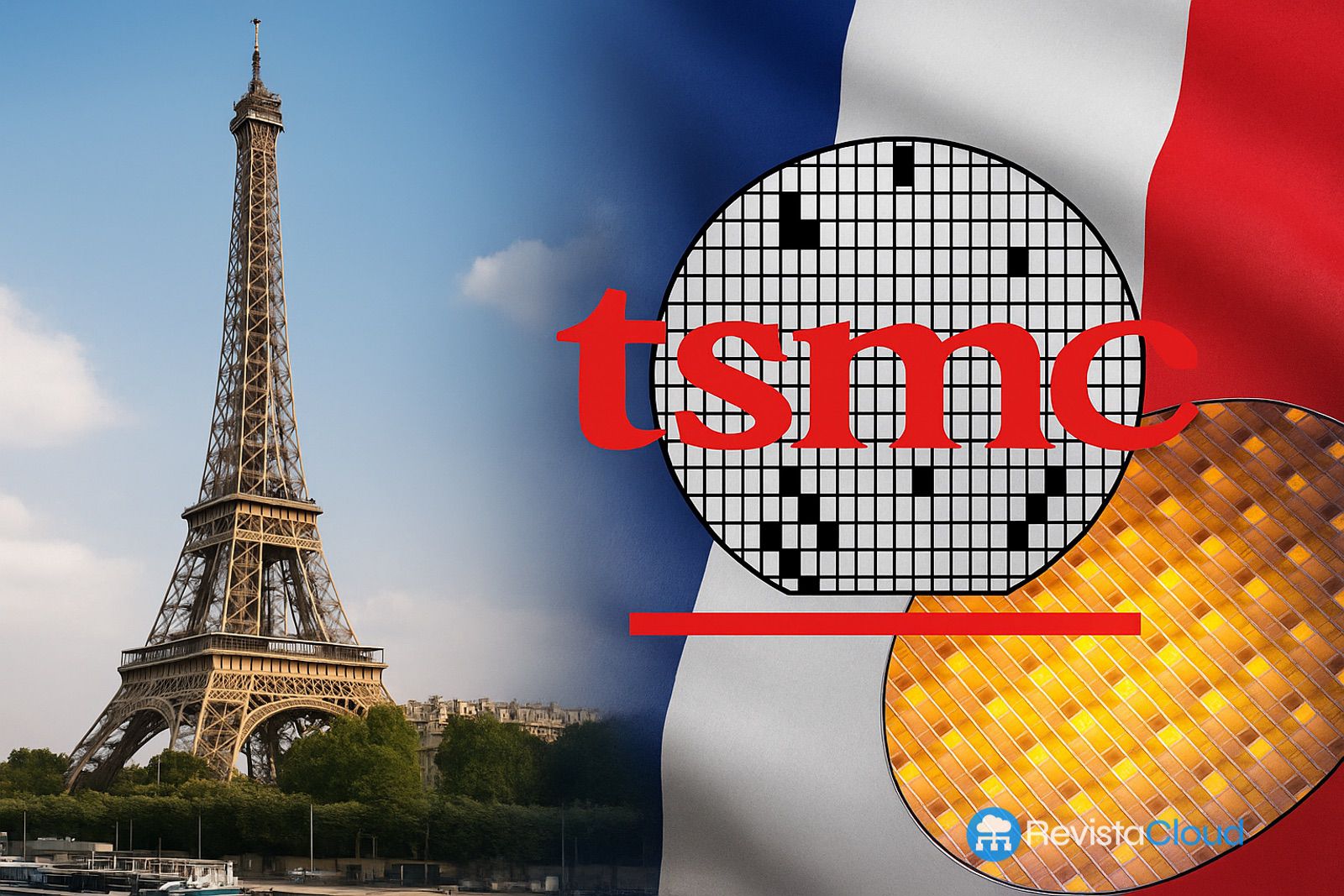The global race for semiconductors is entering a new chapter in Europe. France, under the leadership of Emmanuel Macron, has intensified its efforts to persuade Asian giants like TSMC and Samsung to set up advanced chip manufacturing plants on French soil. The goal: to secure technological autonomy and strengthen the European industry in a context of global tensions and supply chain transformation.
Macron’s Vision: 2 to 10 Nanometer Chips for France
During the latest edition of VivaTech in Paris, the French president outlined his ambitious vision: to develop a cutting-edge semiconductor supply chain in France capable of producing chips between 2 and 10 nanometers. This technological range, crucial for sectors such as artificial intelligence, quantum computing, and automotive, is currently almost exclusively reserved for factories in Taiwan, the United States, and, to a lesser extent, South Korea.
Macron admitted that achieving this goal requires attracting investment from global leaders like TSMC or Samsung, following the model of the United States, which has allocated more than 60 billion euros in public funding for this purpose through the CHIPS Act. However, the task will not be easy: each state-of-the-art plant is estimated to require minimum investments of between 10 and 15 billion euros, in addition to overcoming significant regulatory, infrastructure, and specialized talent challenges.
Europe Responds to International Pressure
The French push comes at a pivotal moment for Europe. The technological dependency on Asia and the United States, highlighted by the pandemic and the rise of electric vehicles, has prompted the European Union to launch its own strategy: the European Chips Act, which will mobilize up to 43 billion euros between 2023 and 2030 to boost semiconductor manufacturing and R&D within Europe.
However, this budget pales in comparison to the 280 billion dollars the United States will dedicate to the sector in the next decade or the 150 billion invested by China since 2014. Of the European funds, only 3.3 billion come from the community budget; the rest relies on collaboration among member states and private investment.
Global Competition and Strategic Risks
France aims to position itself as a magnet for major global manufacturers, but the competition is fierce. Countries like Germany have already secured TSMC’s commitment to establish a megafactory in Dresden, partially funded by the German government. However, the operation and commissioning of such advanced plants face significant technical, regulatory, and skilled workforce challenges.
The geopolitical context adds pressure: U.S. technology export restrictions imposed on China, the risks associated with production concentration in Asia, and the volatility of trade relationships have accelerated the need for local alternatives in Europe. As recognized from the Élysée, relying on U.S. chips implies incurring extra costs due to tariffs, while a greater Chinese presence in the European sector raises issues of sovereignty and security.
Is the French Bet Realistic?
Currently, a significant portion of the European industry, especially the automotive sector, could be supplied with nodes of 16 nm or higher, which are more than sufficient for many applications. However, the bet on 2 to 10 nm chips aims to anticipate future needs in artificial intelligence, defense, and new technologies.
The success of the French strategy will depend on its ability to attract investments, offer competitive tax incentives, and create a regulatory and infrastructure environment on par with global leaders. Macron acknowledges that the task is complex but insists that the future of European technological sovereignty hinges on achieving it.
Source: wccftech

